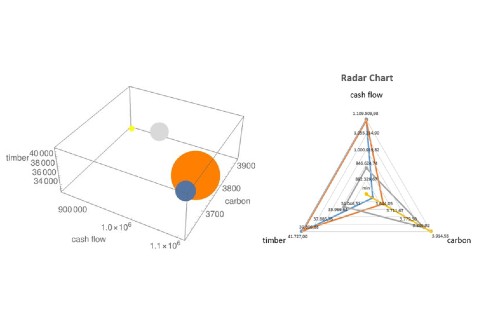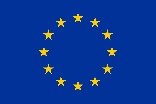
First milestones in the development of the decision support system
Initial progress was made in the development of the targeted Within the Multi-Criteria Decision Support System (MCDSS). In an exchange with the project partners, a basic mathematical model could be agreed upon.
In this model, the future user is allowed to define the present situation of his or her stand and to indicate the objectives pursued during the planning horizon. Depending on the user's preferences, a recommendation for action can then be made in the form of management options that should be applied to the stands. From this model, the necessary data input format for the future users was then derived and made available to the project partners as a first milestone. Here, the data structure was initially created and illustrated using exemplary indicators. These indicators are to be supplemented step by step in the course of the project.
In the next step, the basic model was implemented on a test basis. With the help of some sample data of the project partners, the first numerical studies were carried out. Thus, it was possible to gain deeper insights into the model behavior, for example with regard to computation times and the frequency of solutions for differently weighted objectives. These first findings are valuable for the further development of the prototype in the further course of the project.
This work is looking forward to demonstrating the first prototype to the project partners during an interactive workshop at the General Assembly in February.
MCDSS will provide information to stakeholders on the Forest-Wood Value Chain (FWVC) based on a combination of(stakeholder) objectives and quantified impacts. The aimed solutions will harmonise the interests of all stakeholders by assuming a virtual superior decision-maker who is optimising an overall objective (sum of all stakeholder objectives). The MCDSS serves to achieve resilient forest production systems, widely common management, and shared knowledge about individual decisions’ contribution to meet relevant Sustainable Development Goal (SDGs). Actors will be empowered to understand the far-reaching consequences of their decisions in a multi-criteria decision-making environment.
This work is being leaded by Technische Universitaet Dresden.

